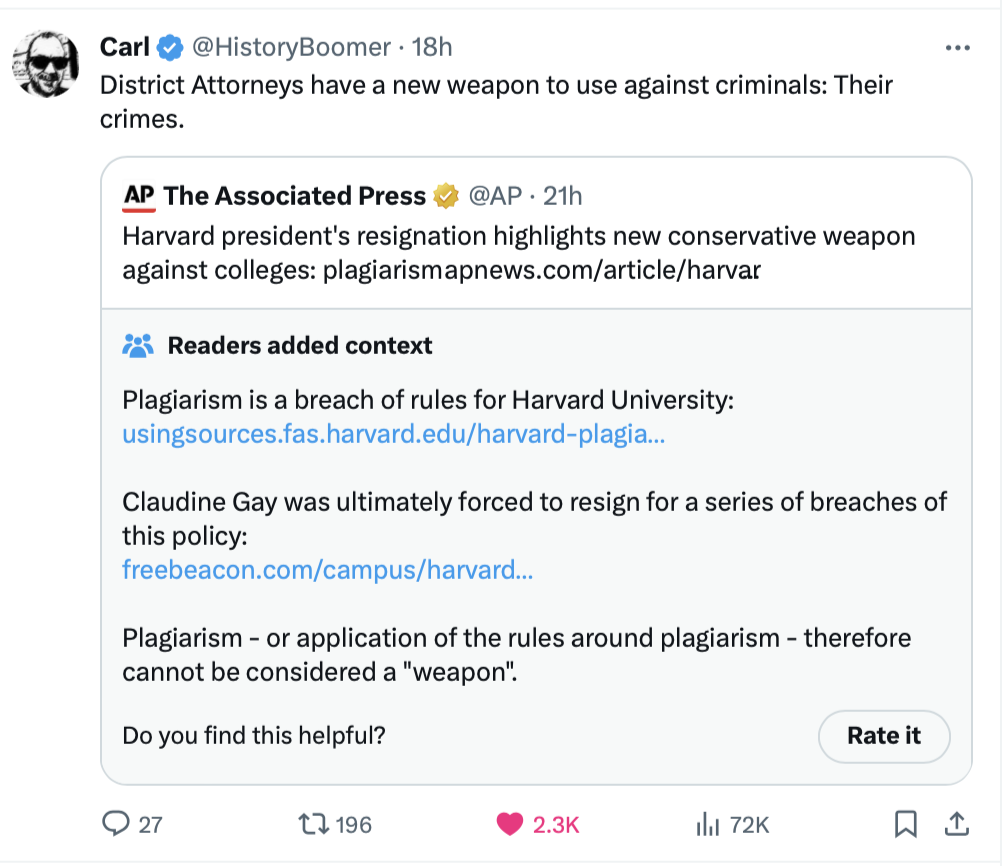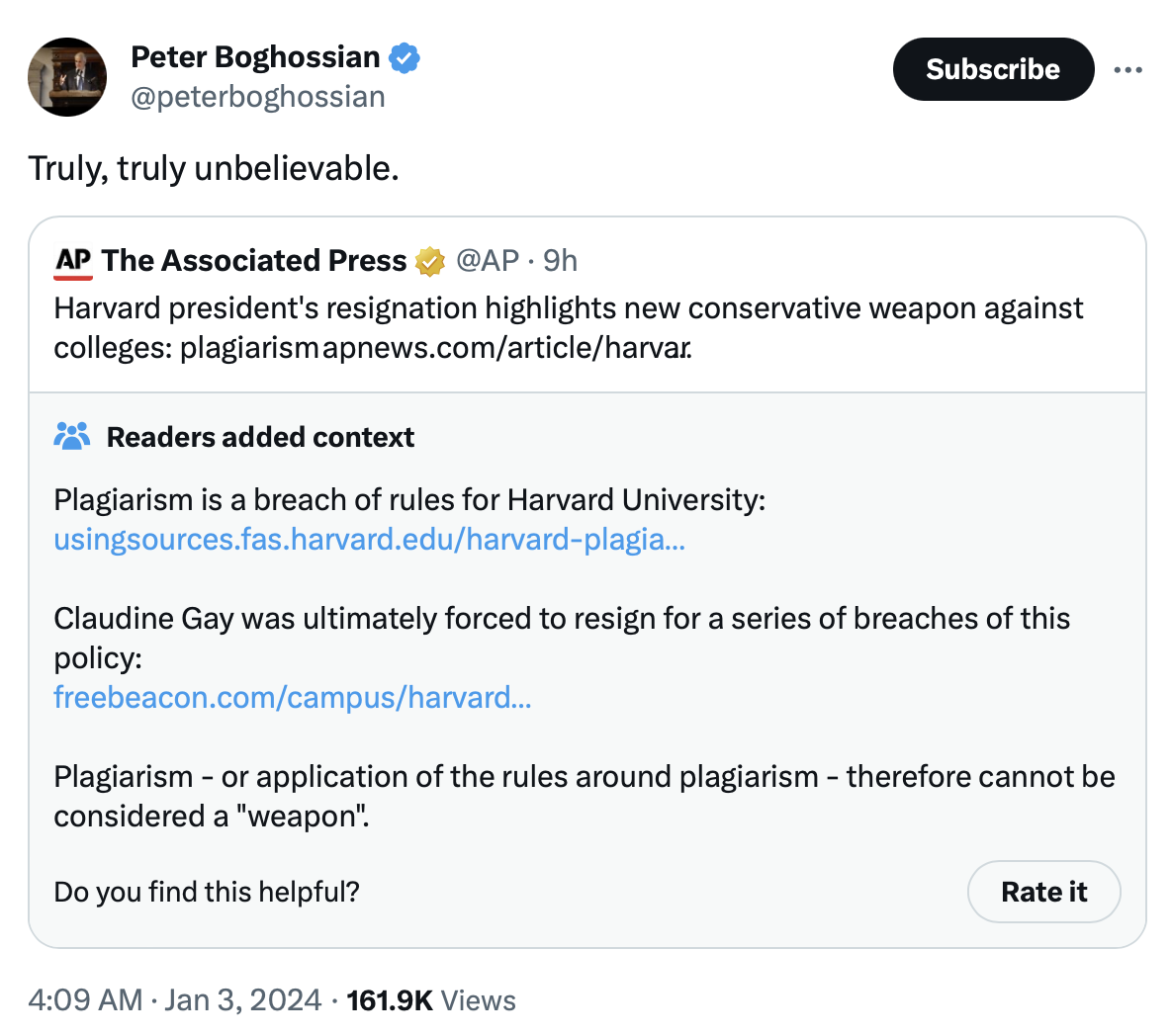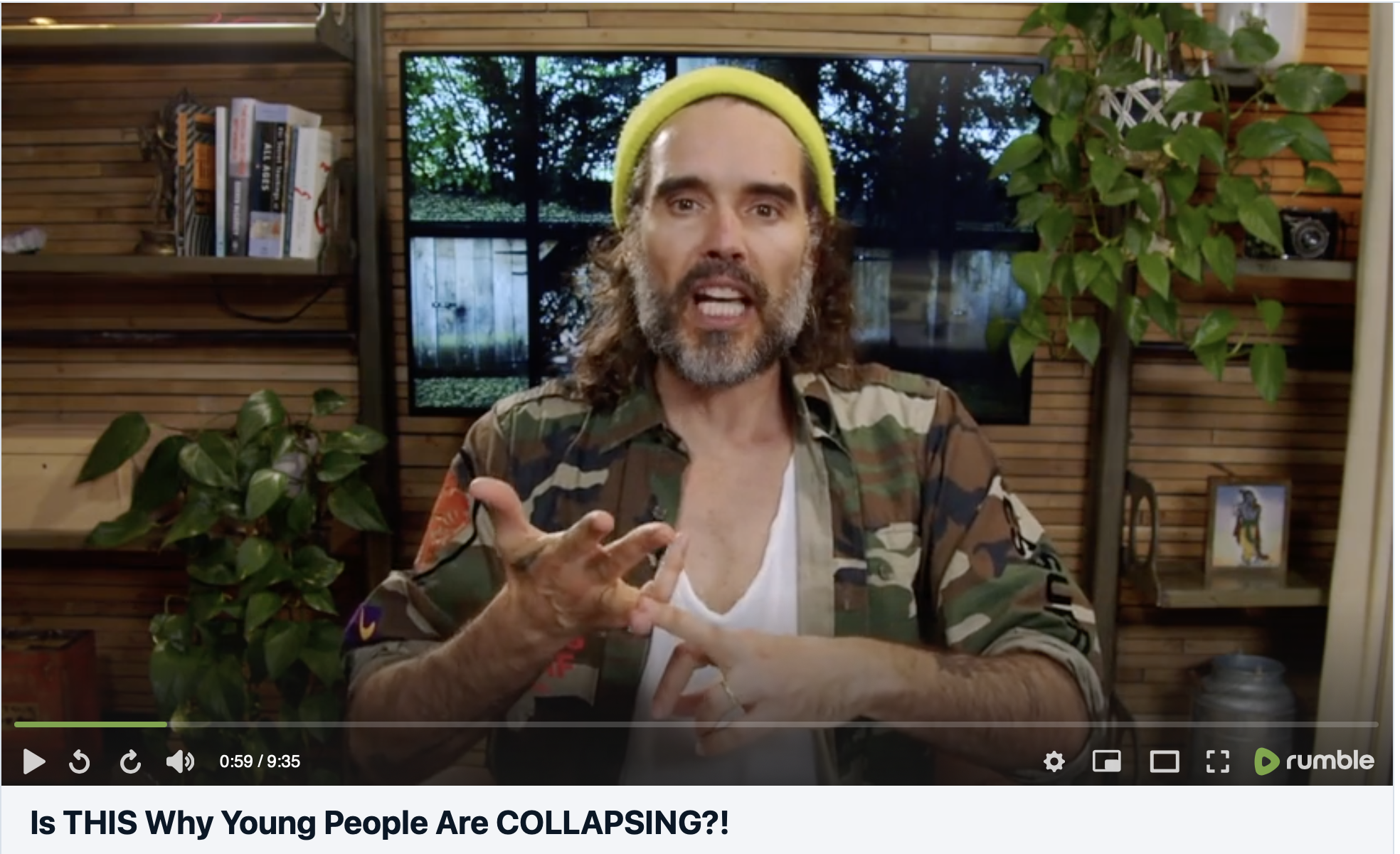The Main Function of Formidable Human Brains is Not Truth-Seeking: The Defense of Claudine Gay’s Plagiarism
Notice how Greg Lukianoff distinguishes between the free speech issues and the plagiarism issues in which "smart" people at Harvard, pundits and media are using their formidable intellectual training to generate endless streams of bullshit.
I agree completely with Lukianoff who offers several valuable resources for reforming financially-bloated ideology-permeated elite colleges.
Excerpt:
Once Gay resigned, we then saw people like Nikole Hannah-Jones, Ibram X. Kendi, and others (including the Associated Press, with its coverage being mocked for its original headline, “Harvard president’s resignation highlights new conservative weapon against colleges: plagiarism”), pointing the finger at racism and right-wing animus rather than on the real problem: Harvard itself, and our institutions of higher learning as a whole.
In my and Rikki Schlott’s book “The Canceling of the American Mind,” we outline a fourth “Great Untruth” (adding to the first three Jonathan Haidt and I described in “The Coddling of the American Mind”) which is that “bad people only have bad opinions.” This is the foundational assumption of what we call the Perfect Rhetorical Fortress, the method by which cancelers on the political Left shut down arguments. By declaring someone a “conservative,” a “right winger,” — or, if you REALLY want them to be ignored, “far right,” “fascist,” or, my new favorite, “Neo-confederate” — whether they actually are conservative or not, they are also declaring that they are evil and therefore incapable of being correct. This form of non-argumentation, which I have dubbed “fasco-casting”, along with the political Right’s Efficient Rhetorical Fortress tactics (which similarly use labels like “liberal” and “woke” to automatically dismiss counterarguments) is a near-ubiquitous anti-intellectual habit these days.
Research has demonstrated that the brain is not primarily a truth-seeking organ. It can seek truth, but that is much more likely to happen in specialized environments where enlightenment principles prevail, for instance the type of environment where disciplined scientists and engineers work together to create things that really work in the real world.Out in the wild, the real world, where most of us spend most of our time, brains are mostly used as PR departments, generating "reasons" for doing what we want to do based on our emotions. Lukianoff offers several resources for exploring this counter-intuitive finding:
The biggest problem with smart people is that they’re incredibly good at using their prefrontal cortices to rationalize what they want to believe in the first place. This is a well-documented phenomenon, and one you can observe yourself right now. Are you inclined to agree with me here? If so, you’re already forming rationalizations about why I’m correct. If you’re inclined to disagree, you’re reading this with an eye for poking holes in everything I’m saying.
But it is a serious problem, summarized well by another Substack, The Prism:
“The correlation between intelligence and ideological bias is robust, having been found in many other studies, such as Taber & Lodge (2006), Stanovich et al. (2012), and Joslyn & Haider-Markel (2014). These studies found stronger biases in clever people on both sides of the aisle, and since such biases are mutually contradictory, they can’t be a result of greater understanding…Since we’re a social species, it is intelligent for us to convince ourselves of irrational beliefs if holding those beliefs increases our status and well-being. Dan Kahan calls this behavior “identity-protective cognition” (IPC).
By engaging in IPC, people bind their intelligence to the service of evolutionary impulses, leveraging their logic and learning not to correct delusions but to justify them. Or as the novelist Saul Bellow put it, “a great deal of intelligence can be invested in ignorance when the need for illusion is deep.”




